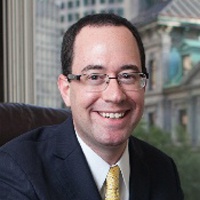Lincoln Felony Lawyer, Massachusetts
Sponsored Law Firm
-
 x
x

Click For More Info:
-
Adam P. Beck, M.D., Esq.
25 Marston St Suite 303 Lawrence, MA 01841» view mapAccident & Injury Law Legal Expertise You Can Rely On
By working with lawyers who are also doctors, clients can benefit from advocates who have a deeper understanding of their physical injuries, medical needs, and prognoses.
800-383-8491
Christian T. Baillet
✓ VERIFIEDCriminal, Misdemeanor, Felony, DUI-DWI
Christian T. Baillet is a practicing lawyer in the state of Massachusetts handling criminal defense matters.
Joseph Simons
✓ VERIFIEDCriminal, White Collar Crime, Felony, DUI-DWI
Offering high-quality criminal defense to people in Boston and throughout Massachusetts.
I help people in all walks of life, from doctors to CEOs to blue-collar workers. Whoever you are, if you're facing criminal charges, everything else ... (more)
FREE CONSULTATION
CONTACTFREE CONSULTATION
CONTACTFREE CONSULTATION
CONTACTFREE CONSULTATION
CONTACTStephen T. Armato
Federal, Felony, Criminal, Deceptive Trade Practices, Corporate
Status: In Good Standing Licensed: 32 Years
 Adam Beck Lawrence, MA
Adam Beck Lawrence, MA AboutAdam P. Beck, M.D., Esq.
AboutAdam P. Beck, M.D., Esq. Practice AreasExpertise
Practice AreasExpertise


